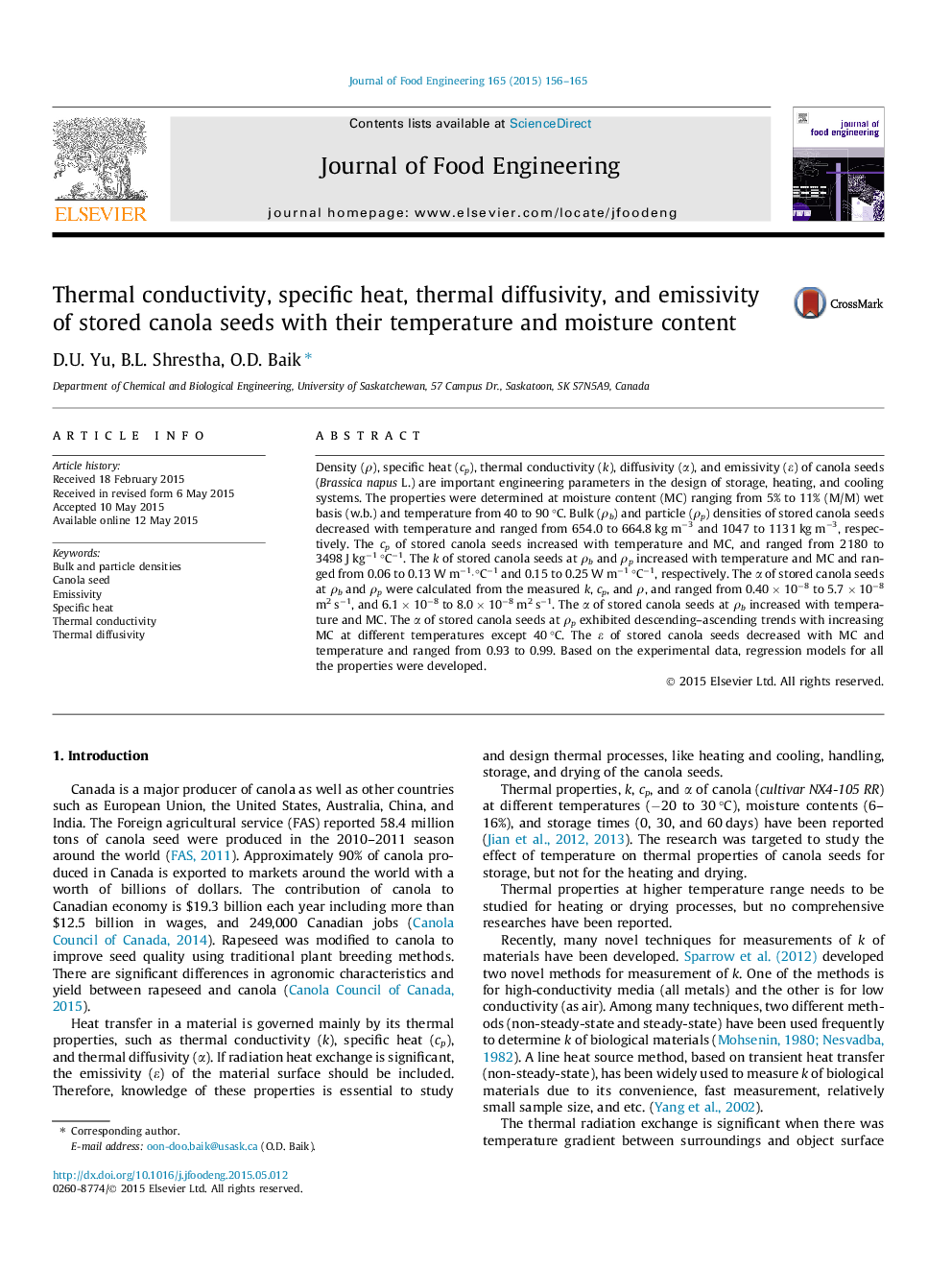| Article ID | Journal | Published Year | Pages | File Type |
|---|---|---|---|---|
| 6665301 | Journal of Food Engineering | 2015 | 10 Pages |
Abstract
Density (Ï), specific heat (cp), thermal conductivity (k), diffusivity (α), and emissivity (ε) of canola seeds (Brassica napus L.) are important engineering parameters in the design of storage, heating, and cooling systems. The properties were determined at moisture content (MC) ranging from 5% to 11% (M/M) wet basis (w.b.) and temperature from 40 to 90 °C. Bulk (Ïb) and particle (Ïp) densities of stored canola seeds decreased with temperature and ranged from 654.0 to 664.8 kg mâ3 and 1047 to 1131 kg mâ3, respectively. The cp of stored canola seeds increased with temperature and MC, and ranged from 2180 to 3498 J kgâ1 °Câ1. The k of stored canola seeds at Ïb and Ïp increased with temperature and MC and ranged from 0.06 to 0.13 W mâ1·°Câ1 and 0.15 to 0.25 W mâ1 °Câ1, respectively. The α of stored canola seeds at Ïb and Ïp were calculated from the measured k, cp, and Ï, and ranged from 0.40 Ã 10â8 to 5.7 Ã 10â8 m2 sâ1, and 6.1 Ã 10â8 to 8.0 Ã 10â8 m2 sâ1. The α of stored canola seeds at Ïb increased with temperature and MC. The α of stored canola seeds at Ïp exhibited descending-ascending trends with increasing MC at different temperatures except 40 °C. The ε of stored canola seeds decreased with MC and temperature and ranged from 0.93 to 0.99. Based on the experimental data, regression models for all the properties were developed.
Related Topics
Physical Sciences and Engineering
Chemical Engineering
Chemical Engineering (General)
Authors
D.U. Yu, B.L. Shrestha, O.D. Baik,
